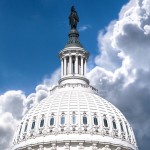In his famous critique of the Treaty of Versailles, The Economic Consequences of the Peace (1919), John Maynard Keynes observed: “Lenin is said to have declared that the best way to destroy the Capitalist System was to debauch the currency.” History, however, illustrates that the greatest debauchers of money have not been Communist revolutionaries or even run-of-the-mill counterfeiters. The primary culprits have been entirely legitimate governments.
Writing in the fourth century B.C., the Greek philosopher Diogenes described money as the legislators’ game of dice. Almost 2000 years later, the scholastic theologian Juan de Mariana wrote an entire treatise, De monetae mutatione (1609), assailing governments for depreciating currencies in pursuit of dubious ends. For his pains, Mariana was charged with treason and sentenced to life imprisonment in a Franciscan monastery. 152 years after Mariana’s death, Adam Smith lamented in his Wealth of Nations (1776) that “in every country in the world . . . the avarice and injustice of princes and sovereign states abusing the confidence of their subjects, have by degrees diminished the real quality of the metal, which had been originally contained in their coins”.
These observations are not mere historical asides. They reflect an on-going problem with governments’ management of the supply of money. Sometimes this has devastating consequences. Few today, for example, would question the contributions of flawed monetary policy to the Great Depression. Many remember the debilitating stagflation of the 1970s that owed much to the neo-Keynesian monetary policies pursued by governments after World War II. Today scholars such as the historian of the Federal Reserve Allan Meltzer suggest that the Federal Reserve’s present strategy for preventing future inflation is seriously flawed and setting us up for significant problems in the future.
It is not as if alternatives have not been considered. The now-common model of relative central bank independence arose partly from a desire to dilute the ability of politicians with short-term horizons to influence monetary policy. Likewise, one of the chief attractions of the gold standard which functioned in increasingly diluted forms until President Nixon terminated the dollar’s direct convertibility into gold in 1971 was its ability to constrain governments’ ability to succumb to demands for cheap money.
Start your day with Public Discourse
Sign up and get our daily essays sent straight to your inbox.Along these lines, suggestions have been made to remove government from the business of money-supply altogether. In his well-known monograph The Denationalization of Money (1976), the Nobel Prize economist Friedrich von Hayek sketched a powerful economic argument for ending the state’s monopoly of the money supply. This has been developed by economists such as Jesús Huerta de Soto, whose Money, Bank Credit, and Economic Cycles (1998) contains a comprehensive plan for privatizing the money supply.
The technical details of these and other measures for checking governments’ ability to manipulate the money supply for nefarious purposes continue to be debated. A separate question, however, is whether there is a principled reason for governments—either directly or through central banks—to monopolize the money supply. The fact that governments sometimes perform their designated functions ineffectively or even occasionally abuse them is not in itself a reason to strip the state of a given responsibility.
One reason traditionally given for the state’s monopoly of the money supply is that it is an expression of national sovereignty. While sovereignty’s meaning is endlessly debated, there is considerable agreement that sovereignty expresses a given government’s supreme authority over a given territory. In the mid-fifth-century B.C., for example, Athens compelled her allies to adopt Athenian coinage—a move that signaled Athens’ expanding sense of the territorial boundaries of its sovereignty. The scholar who most developed the concept of sovereignty in the modern era, Jean Bodin (1530-1596), identified the right to issue coinage as a key element of sovereignty. In our time, some of the most contentious debates surrounding the euro have concerned its diminution of the national sovereignty of EU member-states adopting this transnational currency.
But is a state monopoly of the money supply truly essential to sovereignty? When Smith listed the “only three duties [which] according to the system of natural liberty, the sovereign has to attend to,” he did not include the supply of money. It was not until 1914 that the United States legislated to mandate that only one bank would be privileged by the government to issue legal tender.
Some clarification of the issues involved begins to emerge when we consider the purpose of money. Money’s most basic function is to serve as a medium of exchange. From this is derived money’s three other functions: a store of value, a unit of account, and a standard of deferred payment.
It is not immediately clear why any of these functions necessitate a state monopoly of money. Money is certainly a commodity unlike any other economic good. But there is no obvious reason why attempts to undermine money’s ability to perform these functions could not be addressed through the ways we address most other economic crimes. As noted by the distinguished nineteenth-century English jurist and civil servant Lord Farrer, contract law, tort law, and criminal law are more than sufficient to adjudicate such matters without invoking any special law of legal tender.
A different understanding of money, however, is often used to justify the state’s monopoly of the money-supply. This is the idea that, besides the aforementioned functions, money is also a tool for the state’s management of an economy. This occurs through methods such as setting official interest rates or what today is euphemistically called “quantitative easing” (i.e., printing money). None of these techniques for regulating the amount of money in circulation would exist if governments did not enjoy a monopoly of the money supply.
This is further predicated upon the (much disputed) claim that the state can effectively steer an economy so that it serves the common good. The link to sovereignty is the state’s need to invoke a unique authority that allows it to claim responsibility for managing economic activity within a defined set of territorial boundaries.
The problem is that there are many occasions when the state’s regulation of the money supply involves the pursuit of goals that undermine money’s ability to perform its other economic functions. The state’s inflation, for example, of the money supply to reduce public deficits or finance a war economy can undermine money’s ability to serve as a stable unit of value over long periods of time. Prominent modern examples include Germany after each world war or France during its Indo-China and Algerian wars.
Is there any way to resolve this tension between what might be called the “state-centered” and “market-orientated” views of money’s functions? The irony is that concerns about sovereignty are diminishing quickly among “centralizers,” just as they have long disappeared among “privatizers.”
In 2009, for example, a UN panel of experts on restructuring the global financial and economic system chaired by another Nobel economist Joseph Stiglitz proposed the creation of a global reserve currency. This implies all nation-states ceding some of their sovereignty to an international organization, much as many EU members have done to the European Central Bank. Indeed the panel recommended giving responsibility for managing such a currency either to the IMF or to a newly created “Global Reserve Bank.”
In one sense, the centralizers are pushing at an open door. Economic globalization has already diluted national governments’ ability to use their control of the money supply to “manage” domestic economies. Fluctuating exchange rates and the ability of traders to transfer billions across national boundaries by pressing a keyboard have also reduced most governments’ ability to control their national currencies. In short, sovereignty is becoming a moot point.
The difficulty for centralizers such as Stiglitz is how they address the fact that the record of a Global Reserve Bank’s management of monetary policy for the world economy is likely to be as undistinguished as the record of most national central banks in directing monetary policy for national economies. No matter how sophisticated the statistical information and mathematical resources at their disposal, it is simply impossible for any group of central bankers to know, for example, what is the optimal interest-rate for the world in the present, let alone nine months into the future. Mistakes, sometimes with enormous consequences, would inevitably be made.
The contribution of flawed monetary policy (especially by the Federal Reserve System) to the 2008 financial crisis presently appears to be creating some momentum for the international-centralizers. But perhaps the silver lining of this particular cloud is that decreasing worries about sovereignty are clarifying what is really at stake when it comes to creating the stable monetary frameworks upon which economic prosperity depends. Is the key to successful long-term monetary stability the further centralization of control of the money-supply? Or should we investigate decentralizing options, which treat money much as we treat most other essential commodities (such as food) and rely upon market-orientated solutions?
Given the historical record of state-centered strategies of economic management, prudence suggests that we should at least seriously investigate private options. But we may have to await more catastrophic errors by central bankers, national or international, before we allow ourselves to think—and perhaps do—the presently unthinkable.














